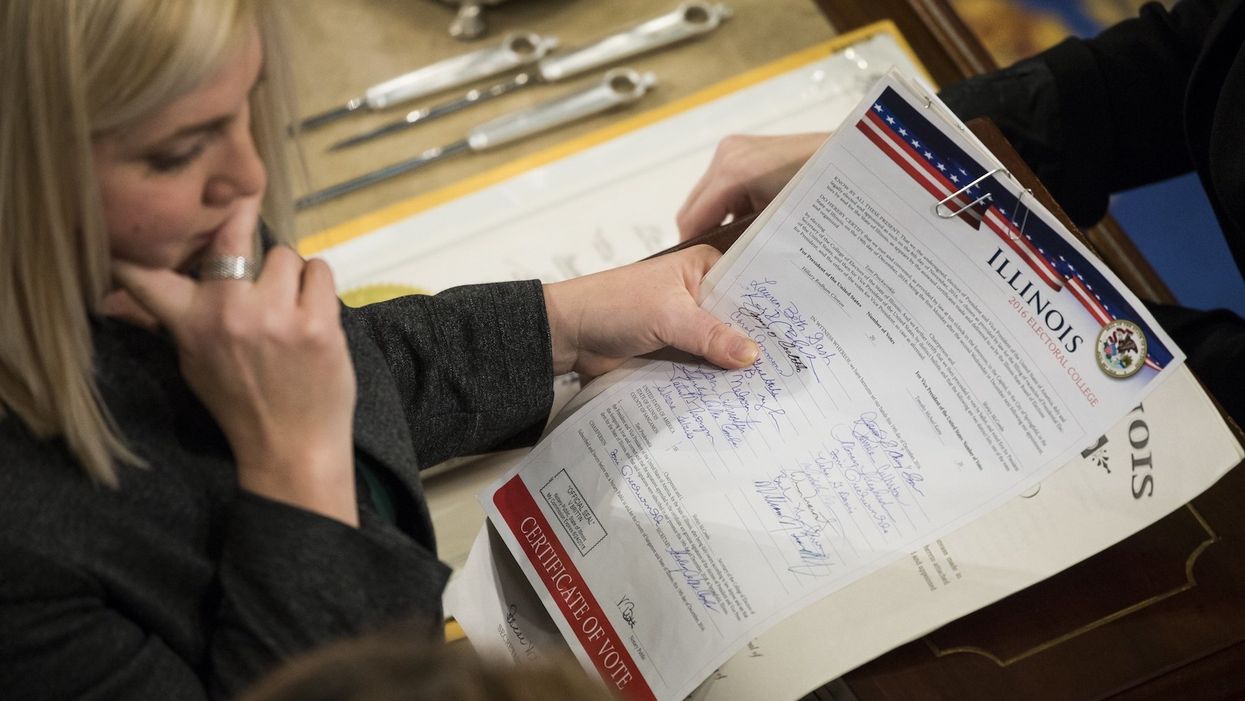
House Clerk staff verify the official Electoral College votes from Illinois during a joint session of Congress at the U.S. Capitol in Washington, D.C., on Jan. 6, 2017. (Photo by Samuel Corum/Anadolu Agency/Getty Images)

Some tried in 2016 to derail Donald Trump's election
Electoral College members hoping to disrupt the system to influence the election results took a loss Monday, as the Supreme Court ruled that states can punish "faithless electors" who vote differently from how they are pledged to vote based on the general election results.
What's this about? There have been conflicting legal decisions regarding whether states can punish Electoral College members who change their vote. In 2016, for example, three electors in Washington state cast their votes for Colin Powell instead of Hillary Clinton.
They hoped to inspire electors in states won by President Donald Trump to change their own votes, preventing Trump from getting a majority of Electoral College votes and pushing the election to the House of Representatives, and were fined $1,000 each for their actions.
What did the Supreme Court say? The Supreme Court ruled in a 7-2 decision that states are justified if they choose to punish these faithless electors.
"The Constitution's text and the nation's history both support allowing a state to enforce an elector's pledge to support his party's nominee—and the state voters' choice—for president," Justice Elena Kagan wrote.
Kagan wrote that since the state has the power to appoint electors, that also grants the state the power to discipline them for changing their vote.
What does this mean? Despite the ruling, not all states will choose to require electors to vote according to their pledges. Only 32 states and the District of Columbia require electors to vote in line with their pledges, and of those, only 15 states enforce that requirement with termination or fines.
Only seven electors voted against their pledges in 2016. Although it was the most electors in a century to do so, it did not have an impact on the result of the election, in which Donald Trump defeated Democratic nominee Hillary Clinton.